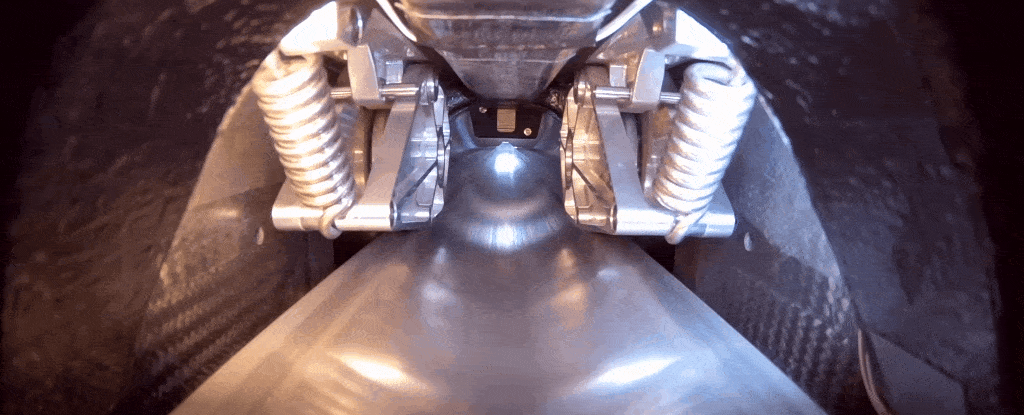A group of German engineering students won the third SpaceX Hyperloop Pod Competition on Sunday, as their prototype pod shattered speed records and raced through a nearly mile-long tunnel at a top speed of 290 miles per hour (466 kilometres per hour).
WARR Hyperloop, from the Technical University of Munich, won first place for the third time in a row and simultaneously set new speed records, topping out at an official 284 mph (457 km/h).
This year's competition was exclusively focused on developing maximum speed pods, with the only requirements being that all pods be self-propelled as they raced to see who could travel the fastest down a 0.8 mile (1.3 kilometre) long test track tunnel from a standstill.
The annual competition drew 20 entrants from all around the world, and was hosted at SpaceX headquarters in Hawthorne, California. SpaceX CEO Elon Musk attended the event, along with his partner, Grimes, the Canadian pop star.
Originally announced in 2015, Musk's annual Hyperloop Competition seeks to cultivate engineering talent while simultaneously developing innovations for a futuristic transportation system. It is the first competition of its kind anywhere in the world.
This year, the event had a convivial feel, as The Verge reports an '80s cover band called the Spazmatics played old songs while nearby university students hung out in the sun, enjoying the music and choice of food trucks.
Musk himself made an unscheduled appearance with Grimes and his five young sons, chatting with students and engineers alike.
"This is really the first opportunity to create a new mode of transport," Musk said, according to The Verge. "That's really what this competition is about: things that could radically transform cities and the way people get around."
WARR Hyperloop came into the competition with ambitious goals. Last month, in a press release, they announced intentions of having their pod hit 378 miles per hour (600 km/h).
Their 2018 pod was designed with a smooth, black aerodynamic shape-one smaller than previous models-and used eight small electric motors that produced 240 kilowatt of energy.
By hitting 284 miles per hour, they bested the speed record set last year by Virgin Hyperloop One's pod, which topped out at 240 miles per hour in December.
Aside from WARR Hyperloop, other finalists qualifying for the competition were teams from Delft University from the Netherlands and EPF Loop from Switzerland.
This article was originally published by Business Insider.
More from Business Insider:
